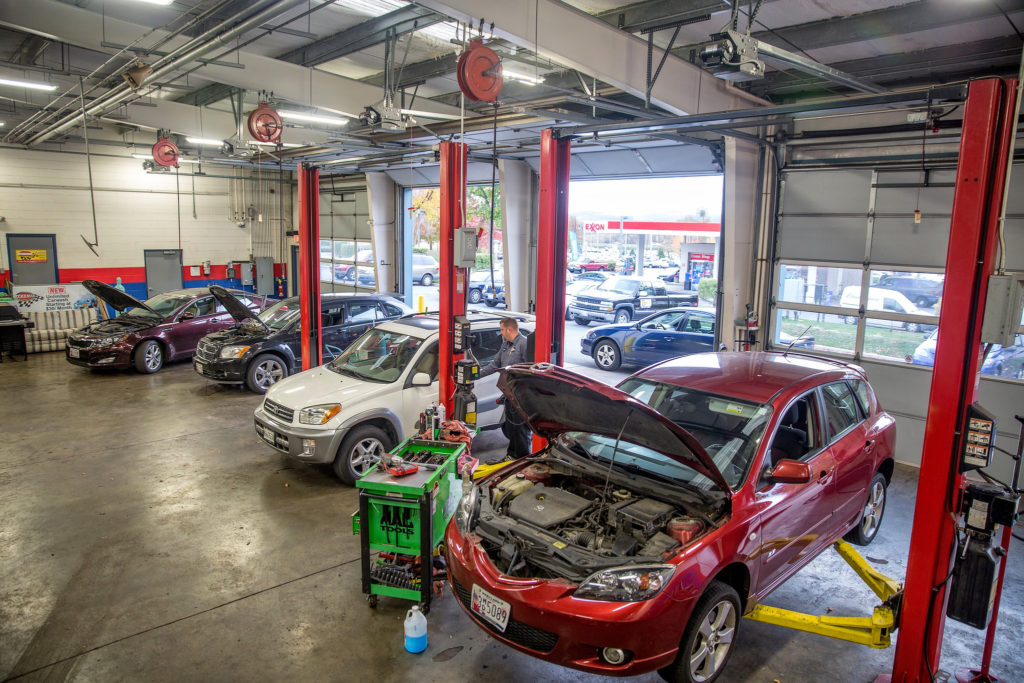All Categories
Featured
Your vehicle's brakes are one of one of the most important parts in ensuring your safety and security and the safety and security of others on the road. Normal brake assessments are vital to preserving optimal stopping efficiency and staying clear of costly fixings. Whether you're a skilled auto owner or a brand-new driver, comprehending brake evaluation standards can aid you remain aggressive about maintenance and guarantee your car is always roadworthy.
- Why Brake Inspections Matter. Brakes undergo constant damage. The more you drive, the a lot more rubbing your brake pads sustain, eventually causing decreased stopping performance. Without appropriate inspection, it's hard to gauge when your brakes could be in need of repair. Normal brake checks aid recognize concerns early on, stopping prospective failures that could put you in jeopardy.
A well-kept brake system guarantees quick, responsive stopping power, especially in emergency situations. It also helps extend the life of your car, as ignoring brake upkeep can lead to more serious, expensive problems later on.
- Indicators You Required a Brake Inspection. While it's essential to have your brakes examined occasionally, specific signs might indicate that they need interest. Maintain an eye (and ear) out for these warning signals:
Squeaking or Grinding Sounds: Unusual noises, particularly a piercing squeal or grinding sound, frequently mean that your brake pads are put on down. Resonance or Pulsation: If you feel vibrations or a pulsing experience when pressing the brake pedal, maybe an indication of warped blades or unequal brake pad wear. Reduced Brake Responsiveness: If your brakes really feel less receptive or you have to push the pedal harder to decrease, it may suggest air in the brake lines or low brake liquid. Drawing away: If your vehicle pulls away when braking, it can mean uneven brake pad wear or a brake liquid leak. Control Panel Caution Lights: Some cars have brake-related caution lights that show concerns like low brake liquid or used brake elements. If you notice any of these symptoms, it's important to have a specialist mechanic do a brake inspection immediately.

- What Happens Throughout a Brake Assessment? During a brake assessment, a mechanic will examine numerous crucial components of the braking system to make sure whatever remains in functioning order. Here's what you can expect throughout the procedure:
Brake Pads and Shoes: The auto mechanic will certainly check the thickness of the brake pads or shoes. If they're also thin, they'll require to be replaced. Brake Rotors: Blades are the discs that the brake pads press versus to reduce your vehicle down. They'll be looked for any indicators of wear, scoring, or warping. Brake Liquid: Reduced or contaminated brake fluid can hinder braking efficiency. The professional will certainly examine the fluid level and quality and top it up or purge it if necessary. Brake Lines and Tubes: Brake lines lug liquid from the master cyndrical tube to the brakes. The mechanic will look for any leakages, cracks, or damage to guarantee appropriate liquid circulation. Brake Calipers and Wheel Cylinders: Calipers and wheel cyndrical tubes press the brake pads versus the blades or drums. The service technician will inspect for wear, leaks, and correct procedure. 4. Exactly how Commonly Should You Have Your Brakes Evaluated? The frequency of brake evaluations depends on factors like your driving routines, the kind of car you drive, and the setting in which you drive. As a general regulation, it's a good idea to have your brakes examined every 12,000 miles or yearly. Nonetheless, if you experience any one of the indication stated earlier, it is essential to obtain your brakes checked quickly.
For those that often drive in rush hour, mountainous terrain, or rough climate condition, more frequent evaluations might be essential.
- Value of Timely Brake Services. When you spot a problem with your brakes, it's necessary to address it as soon as possible. Delaying brake fixings can result in more considerable damage to your stopping system, leading to greater repair work costs. In extreme instances, disregarding brake concerns can result in complete brake failing, which is a major security danger.
By staying on top of brake upkeep and resolving problems without delay, you make certain that your brakes remain to execute as meant, maintaining you and your passengers safe when traveling.
Conclusion: Keep Your Brakes in Leading Forming. Brake evaluations are a basic yet essential component of car maintenance. By comprehending the importance of normal evaluations, knowing the indications of brake issues, and staying aggressive with repair services, you can ensure your automobile's braking system remains in optimal problem.
Latest Posts
Explore Montclare Auto Repair’s Premier Car Care Solutions and Why Drivers Choose Them
Explore Best Auto Repair Care in Chicago – Drive with Confidence
Reputable Industrial Roofing Services by Weathercraft
More
Latest Posts
Explore Montclare Auto Repair’s Premier Car Care Solutions and Why Drivers Choose Them
Explore Best Auto Repair Care in Chicago – Drive with Confidence
Reputable Industrial Roofing Services by Weathercraft
